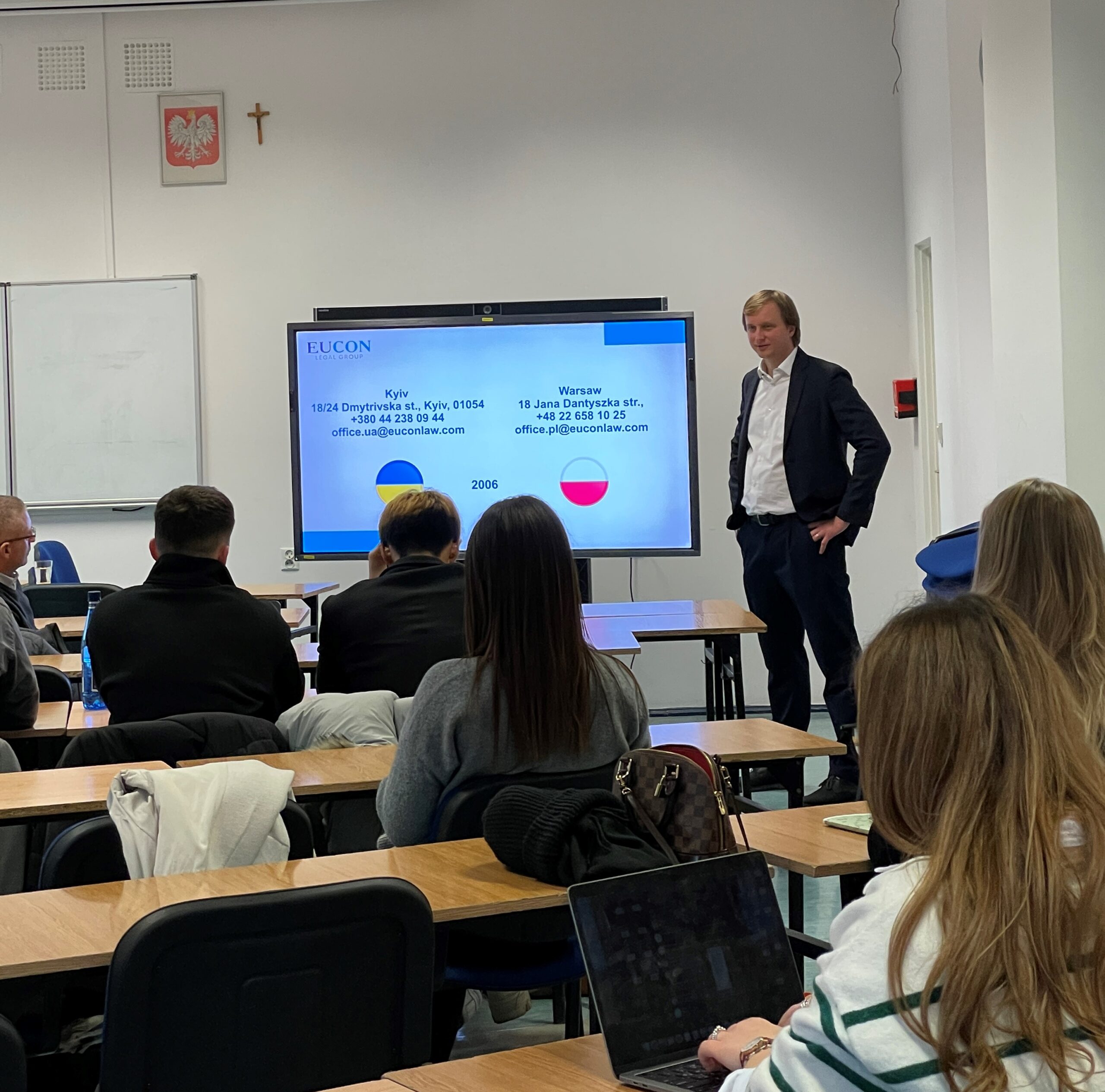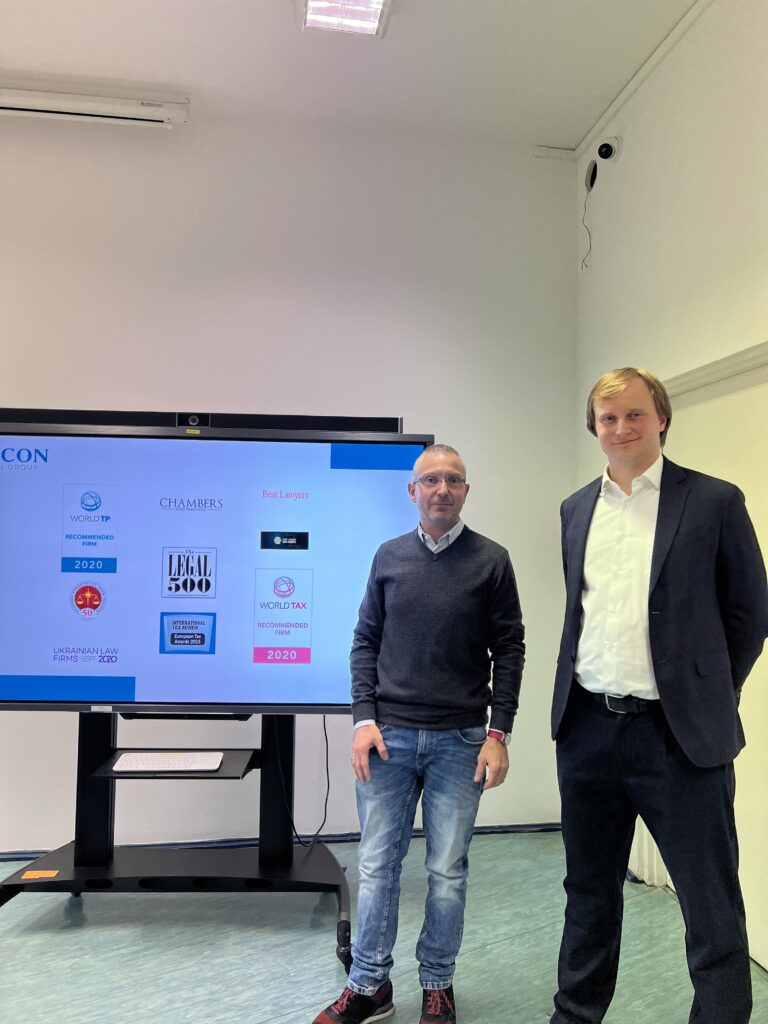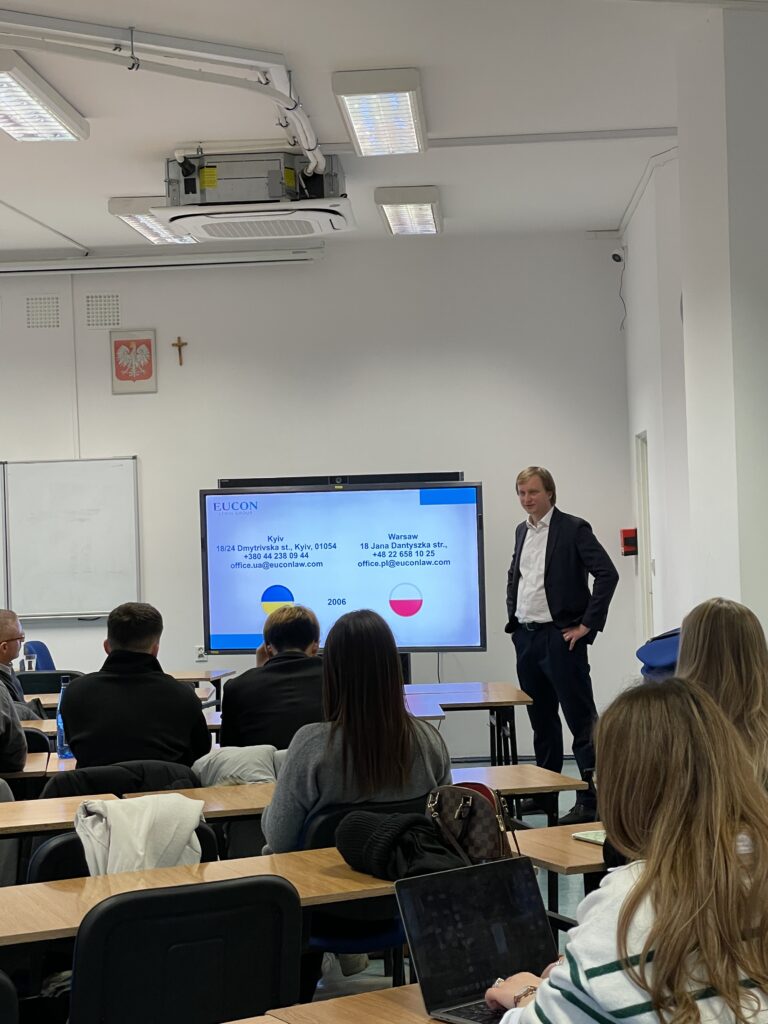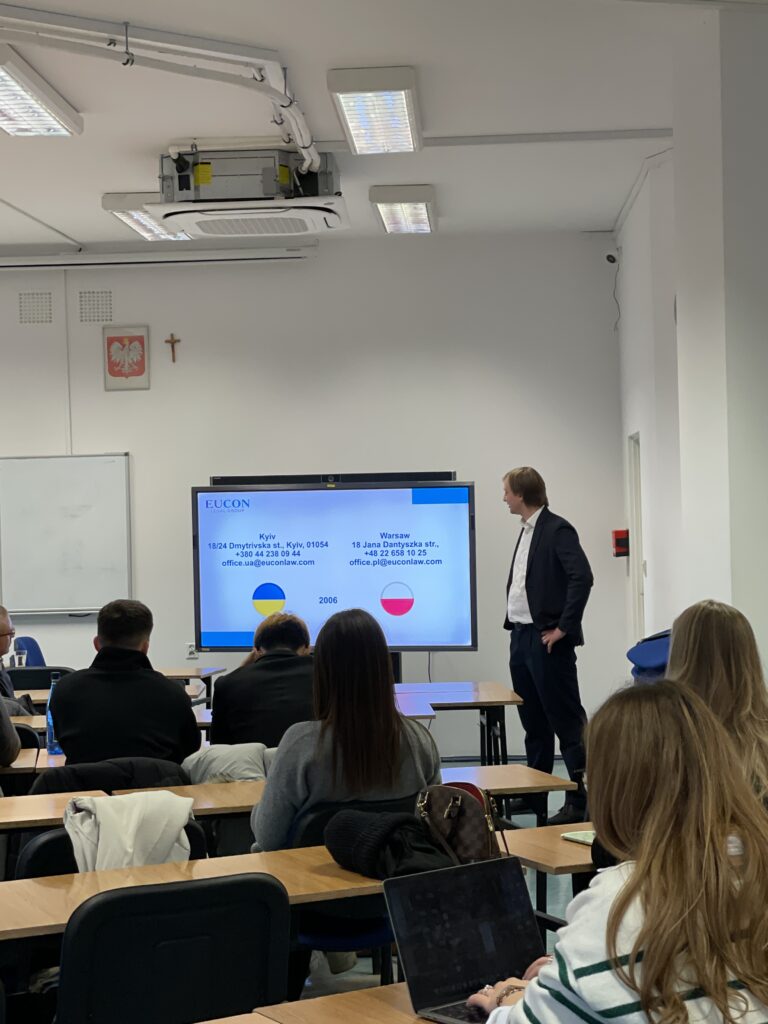
On November 23 a lecture was held for students of management at Lazarski University in Warsaw as part of the “Doing Business in Emerging Economies” course with a special guest Andrii Romanchuk, a lawyer, partner, head of the EUCON office in Warsaw.
Within the topic “Doing business in Poland. The biggest mistakes and how to avoid them” Andrii Romanchuk presented EUCON activities, particularly in the direction of supporting companies and startups entering European markets, and demonstrated the practical cases of the company. He also demonstrated the startup ecosystem functioning between Ukraine and Poland through the Association of Ukrainian Business in Poland and Polish-Ukrainian Startup Bridge, ISE Corporate Accelerator (from Ukrainian side) and Rebels Valley, Startup Academy (from Polish side). The lecturer also shared his experience in specialized training programs and internships.
Andrii described in detail the 11 steps required to create your own business: generating a business name, choosing a business structure, drawing up a business plan, registering the company, setting up tax accounting, obtaining licenses and permits, opening a bank account, drawing up a budget, securing financing, studying the system of deductions (taxes) and setting up automated processes. The expert described the process of creating a startup step by step, analyzing each of the elements of the chain.
The lecturer described in detail the issues of business taxation in Poland, naming the main tax rates in Poland, among which the Goods and Services Tax – VAT 23%, 8%, 5%, 0%; corporate income tax (CIT) – 19% or 9%; Estonian CIT as a special type of taxation of corporate income; individual income tax (RIT) – 12% or 32%; transaction tax from 0,1% to 2%; property tax (established by the Commune Council).
The expert drew attention to the fact that in 2014-2020 Poland was the most successful beneficiary of funding from EU funds, which were effectively used for the development of various sectors of the economy, and also noted that attention should be paid to the possibility of using financial instruments in Poland in the aspect of the planned EU allocation in 2021-2027 160 billion euros, of which 125 billion euros will be allocated to co-financing and 35 billion. – for loans.
The speaker also elaborated on factors that make the Polish market attractive for foreign investors (special economic zones, industrial and technological parks, government grants, cheap banking programs, certain tax benefits, etc.), as well as the nine types of financing (FFF, accelerators, business angel, grant, VC Funds, crowdfunding, mezzanine funds, private equity funds, IPO).
Not unimportant in the context of the topic are the issues of the most common problems that happened to startups when doing business in Poland and when using financial instruments, and the complex regulatory barriers for startups.
Andrii Romanchuk gave statistics on the amounts of funding raised, the number and value of investments attracted by startups and their distribution, and talked about the sources of funding most often used by startups, in particular: Polish and foreign venture capital, own funds, business angels and PARP.
In addition, the meeting participants reviewed statistics on what amounts of funding are most often attracted, how much investment was attracted by startups in Poland in the 2nd quarter of 2022, the distribution of the largest share of investment in Poland in 2022 and the value of investments attracted in startups in Poland in 2021.
Andrii analyzed the most common problems associated with entering the Polish market, including: aspects of accounting; opening a bank account; access to financial instruments (credit); differences in mentality; management approach (authoritarian – owners/managers/team); work-life balance; problems at the border; immigration issues; attempts by the owner to conduct business in Poland remotely, etc.
At the end of the meeting Andrei Romanchuk told the students about the list of positions in the company, available for an internship, describing the prospects for gaining valuable experience and professional skills, as well as answering questions from the participants.


